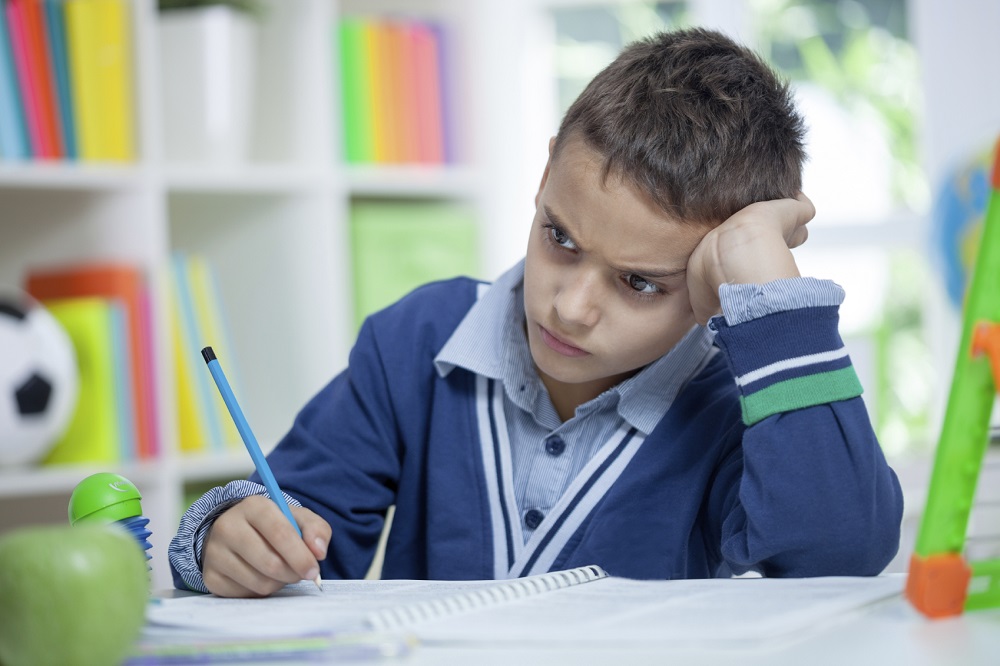
Gifted children can do remarkable things, like take apart cars, build rockets or demonstrate breathtaking artistry. They can also get into trouble at school and are often misunderstood.
The characteristics of gifted children often include hyperactivity, coupled with lack of focus and boredom. They may have trouble with spelling or communicating. They have difficulty making friends or fitting in to peer social circles.
Teachers resent their behavior in class and contact parents for corrective action. Peers turn away and may even bully gifted children for being different.
What causes all these problems? Gifted children may be misunderstood in many ways. Here are five areas where these children face constant challenge.
Intellectually
From a young age, gifted children learn they are smart. They understand what their parents are saying, and they start to use words and phrases that adults use. They speak in complete sentences. They ask appropriate questions. They seek a lot of information.
This intellectual prowess leads to challenging classroom encounters. Gifted children are the first to raise their hands. They know the answers to most questions the teacher will ask. They get their work done before anyone else. They understand concepts and can explain to others how to solve problems.
This in turn leads the teacher to ask the gifted child to tutor other children in class. And in so doing, the teacher places an unfair burden on the gifted student who is now considered a “know it all” and can be resented by the other students. It places a distance between the gifted student and her peers.
The gifted student does not seek authority or even responsibility. She seeks to acquire as much information as possible about the subjects that interest her. She wants to move quickly through the curriculum, delving into more details than her peers, and wants to move on to more challenging material.
Traditional teaching methods address the inclusive class, where all students are treated the same. When a gifted student appears bored with the level of material or the pace of study, or seems inattentive, she draws the attention of the teacher and will probably lead to reprimands. The teacher doesn’t understand that gifted children need to work at their own pace and at their own level – which is much higher than the majority of students in the class.
Gifted students need a different learning environment that caters to their individual strengths, interests, best mode of learning, pace of learning, and their individual growth rates.
Socially
Some children in the general population are extroverts and have outgoing personalities. They are loud and socially aggressive. They are volunteers and leaders and the first ones to join groups, voice their opinions, and establish friendships.
Other children, like gifted ones, are more reserved. They find it difficult to identify other children who think like they do. They have very few, if any, friends. And if they are lucky enough to find a friend, it is hard to maintain the relationship.
It is typical for gifted friends to have differences and misunderstandings among them that lead to inappropriate responses and behaviors, and overreactions.
Gifted children can be bullied by others who don’t understand how and why gifted children are different. Non-gifted children are resentful and jealous. They feel less important and have problems with their own self-image.
Being bullied can lead a gifted child to heightened anxiety and depression. Teachers as well as parents should be aware of potential bullying because the seriously damaging effects it can have on children’s self-image.
Physically
Gifted children have a lot of energy and can be restless in school. Although highly intelligent, they often need to get up and move around. They can appear to be acting out or being disrespectful to the teacher or the class.
They can be characterized as disruptive and chastised by the teacher who doesn’t understand the nature of giftedness.
Gifted children grow and mature at different rates. They may suffer from a lack of fine motor movement or other physical limitations. They may have dyslexia. In these cases, they may have trouble reading or writing, situations which may mask their giftedness. This may also further separate them from the non-challenged students.
Another area of development is athletics. Intellectually gifted students may not be physically gifted, focusing all their attention and time on their intellectual pursuits.
Physical activity is good for the overall development of all children. Learning to be members of a team is helpful in learning to socialize. Competition is a valuable life lesson, as is sharing common goals.
But not participating in sports is often misunderstood by athletes. They view a lack of joining as non-interest and an attitude of superiority by the gifted students. This increases social pressures and adds to anxieties
Emotionally
Gifted children are intense and sensitive. They can overreact to almost any situation involving unexpected pressure. Because of their intense focus and obsession with detail, as well as their curiosity and drive for detailed information, they can appear to be demanding.
These children lack the self-control needed to balance their emotions and react appropriately in group environments. They are over-excitable but the intensity is part of their learning process. They are very aware of stimuli and have a rich inner life of passion, feelings, sensitivity, sense of responsibility and self-examination. This can all be construed as emotional immaturity.
Medically
Gifted children may have a spectrum disorder as well. Autism can often mask an underlying giftedness. The attitudes of boredom and disinterest, and the tendencies toward acting out, can be explained by ADHD.
Strong memories could also disguise the fact that a gifted child may also have Asperger’s Disorder, a trait shared by both. Gifted children could also be bipolar with big swings in behavior between exhilaration and depression.
These disorders might require medications that lead to unusual behaviors in school or in social groups. They may affect eating timetables and appetites, for example.
A diagnosis of a medical condition should be relayed to school teachers and school psychologists and nurses as soon as possible. This might help alleviate the misunderstandings of aberrant behavior that might otherwise occur.
Giftedness can bring opportunities for extraordinary learning. But it is not without problems. Misunderstandings from other children, from teachers and even from parents, can interfere with the realization of a gifted child’s full potential.




